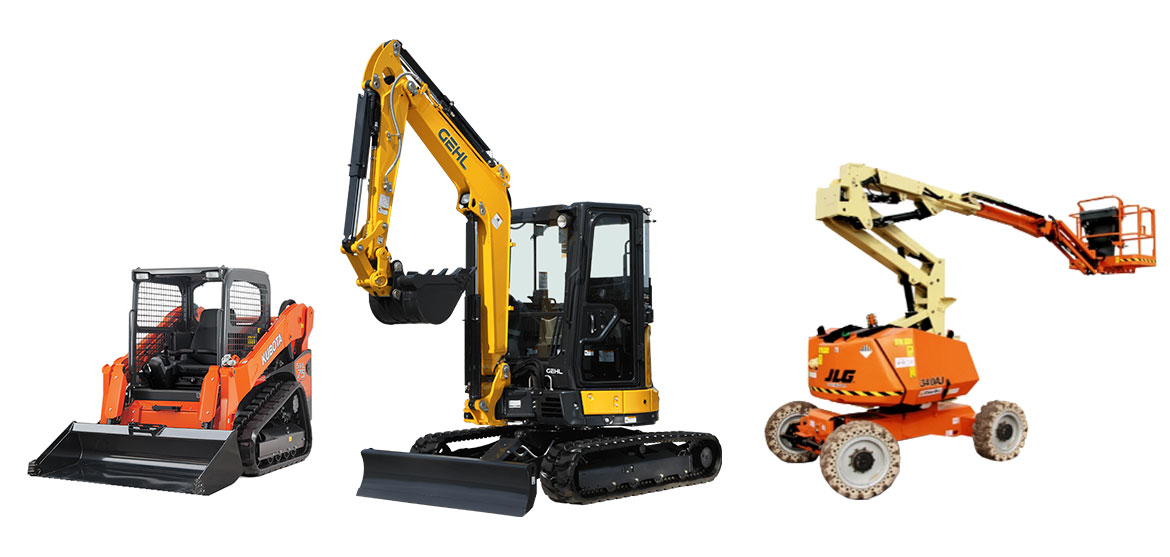Heavy Equipment Rental: Huge Machinery for Any Kind Of Construction Project
Heavy Equipment Rental: Huge Machinery for Any Kind Of Construction Project
Blog Article
Maximize Your Budget Plan by Understanding the Expenses Connected With Building Tools Rentals
Understanding the complete scope of expenses linked with building tools leasings is critical for optimizing your budget. What techniques can be used to effectively manage these prices and make sure an extra reliable rental experience?
Review of Rental Expenses
When taking into consideration building and construction tools rentals, understanding the linked expenses is paramount for efficient budgeting and project planning. Rental costs can differ substantially based on several elements, consisting of equipment kind, period of service, and area. The preliminary rental fee frequently reflects the equipment's market demand and its associated functional capacities, affecting the general expenditure.
Along with the base rental rate, supplementary costs may develop, such as transportation charges, gas surcharges, and upkeep fees. It is important to account for these added expenses to properly assess the complete expense of renting out devices. Moreover, the rental duration can influence pricing; longer leasings may receive discounted prices, while short-term services may incur greater everyday charges.

Malfunction of Rental Rates
An extensive understanding of rental rates is important for service providers and job supervisors intending to maximize their budgets. Rental rates for building equipment typically consist of a number of components, including base prices, time-based costs, and usage costs.
Base prices are the core fees related to the rental of the equipment, usually identified by the kind and dimension of the machinery. These prices can differ significantly, affected by elements such as equipment need, accessibility, and regional market trends. Time-based costs, which might be daily, weekly, or monthly, offer to accommodate various job timelines and rental periods.
Additionally, rental rates might consist of use fees, which are suitable when equipment is used beyond a specified threshold, ensuring that the rental company can represent wear and tear. Seasonal need variations can also impact rental rates, with peak construction seasons typically regulating greater costs.
In addition, recognizing the rental business's policies regarding maintenance and insurance can give more understanding into the total expense structure. By evaluating these components, specialists can make informed decisions, making certain the option of rental equipment lines up with both task needs and budget restraints.
Added Charges to Take Into Consideration
Understanding the intricacies of extra charges is critical for service providers to manage their total service expenditures successfully. Past the basic rental prices, various supplementary charges can considerably impact the complete price of devices leasing. These charges often include shipment and pickup charges, which can vary based upon range and logistics involved in transporting the equipment to and from the work website.
Furthermore, some rental business may enforce gas additional charges if the tools is returned with much less fuel than when rented out. It is likewise important to know possible cleansing charges, especially for specific tools that calls for comprehensive maintenance after use.

Completely evaluating the rental agreement and clearing up these additional charges upfront can assist specialists guarantee and stay clear of unanticipated expenses that budgets stay undamaged throughout the project lifecycle.
Upkeep and Repair Work Costs
Regular repair and maintenance costs are frequently ignored factors that can substantially influence the general price of building tools rentals. When leasing devices, it is critical to consider not just the rental costs but also the prospective expenses linked with maintaining the machinery in ideal operating problem.
Several rental business consist of basic upkeep as component of the rental agreement; nevertheless, more unanticipated breakdowns or comprehensive repair work can lead to extra expenses. It's vital to evaluate the rental contract carefully to recognize what upkeep services are covered and what responsibilities fall on the renter.
Additionally, devices that is not well-kept can result in ineffectiveness at work website, possibly raising and triggering delays job costs. To reduce these risks, it is advisable to carry out regular inspections and maintain open interaction with the rental service provider regarding any type of problems that develop during use.
Insurance Policy and Responsibility Expenses
Insurance and obligation expenses are crucial components that can dramatically affect the general expenditure of building and you could try here construction devices rentals (scissor lift rental). These costs make certain that both the rental business and the customer are safeguarded from potential monetary losses developing from accidents, damages, or theft during the rental duration

In addition, clients must recognize any type of deductibles or exemptions in the insurance coverage policy, as these can impact possible out-of-pocket expenses. Recognizing the terms of any insurance coverage is essential to prevent unforeseen prices. Eventually, budgeting for insurance and liability costs can aid guarantee a smoother rental experience and shield versus financial dangers connected with building and construction projects.
Conclusion
In verdict, a thorough understanding of the expenses associated with construction devices rentals is crucial for reliable spending plan monitoring. Ultimately, educated decision-making regarding tools rentals adds to the overall success of building undertakings.
Rental costs can differ considerably based on numerous elements, including devices kind, duration of leasing, and place (equipment rental company). The rental duration can influence pricing; longer services may certify for discounted prices, while short-term leasings could incur greater daily fees
By carrying out thorough research and engaging with trustworthy rental business, service providers can successfully navigate the complexities of rental prices, inevitably optimizing their financial sources.
Past the basic rental prices, numerous supplemental costs can significantly affect the overall price of tools service. Rental firms commonly provide liability insurance coverage that covers injuries to 3rd events or damage to building, while devices damages insurance policy can cover the cost of repair work or replacement if the rented look at this site devices is harmed.
Report this page